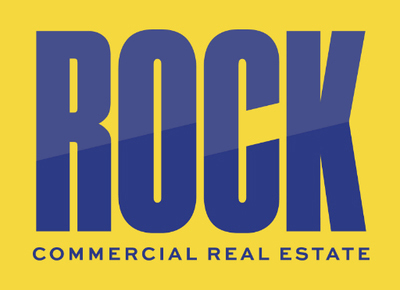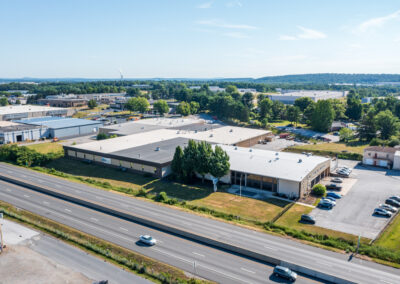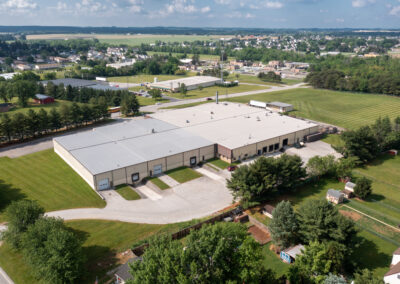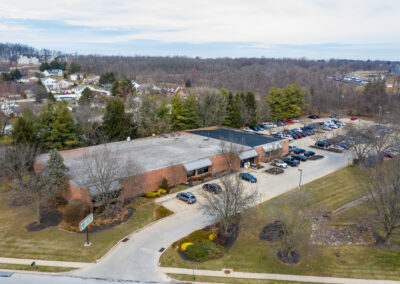Investing in commercial real estate (CRE) can be an excellent growth and income investment opportunity. However, it can also seem bewildering to beginners.
This article will demystify commercial real estate investing for beginners. You will learn what it is, who can invest, the benefits and how to get started. After reading this article, you will be ready to take your first steps into the world of CRE.
What Is Commercial Real Estate?
Commercial real estate refers to properties where people work and do business. This sets commercial properties apart from residential real estate, which applies to properties where people live.
Apartment buildings and multifamily accommodation properties are also identified as commercial real estate because they generate income and typically aren’t owner-occupied, even though they house people. Special regulations often apply to these properties.
The main types of commercial real estate are:
- Retail properties
- Office properties
- Industrial properties
- Land
- Apartment or multifamily properties
- Mixed-use properties that include a residential component in combination with one of the uses above. This is frequently seen in urban areas with a first floor business and apartments above.
Investing in commercial real estate involves exposure to any of these asset types.
Who Can Invest in Commercial Real Estate?
Anyone with access to capital can invest in commercial real estate. If you have money or credit to borrow money, you can make your first commercial real estate investment today.
CRE is a broad asset class with many different entry points. Each type includes properties at various price points. You can also choose collective ownership through investment vehicles like real estate investment trusts (REITs), which make it possible to own a piece of CRE with a modest initial investment.
Why Invest in Commercial Real Estate?
There are many benefits of commercial real estate investment. Here are the top seven perks of adding CRE to your portfolio:
- Options: The broad scope of CRE means you’re more likely to find an entry point that is financially accessible and interesting to you.
- Range of risk: Whether you consider yourself a conservative or aggressive investor, there is a CRE investment opportunity to suit your appetite for risk and time horizon.
- Tax benefits: CRE can offer many tax benefits that allow you to keep more money in your pocket. These include reduced tax liability to account for depreciation and deferred capital gains taxes through a 1031 exchange.
- Leveraging debt: Investors may take a loan to invest in a commercial property. Mortgaging property may allow you to multiply the earning power of your capital by leveraging debt for higher future returns.
- Tangible asset: Unlike other investment vehicles, like stocks, your investment can be seen and touched.
- Diversifying: Perhaps you already own other asset classes like stocks, precious metals or other alternative investments. Adding CRE to your portfolio is a great opportunity to diversify and offers various property types and earning strategies for both novice and experienced investors.
- Hands-on or Hands-off: When investing in CRE, you can access professional property management and commercial lease administration services to allow you to be as hands-on or hands-off as you’d like to be.
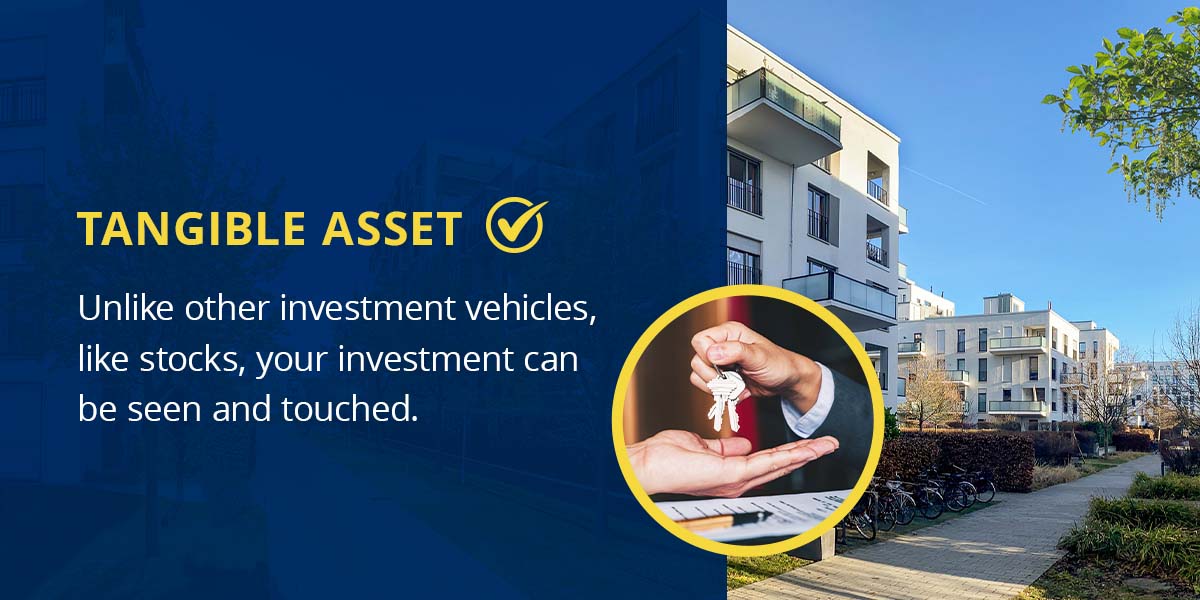
How to Start Investing in Commercial Real Estate
Here are our top 10 commercial real estate investment strategies and tips for beginners:
- Appreciation: As the value of a property increases over time, so does the value of your investment. You can realize these gains by selling the property or holding the asset as a continued growth investment.
- Rental income: CRE can be a profitable income investment, allowing you to collect monthly rent from tenants.
- Flipping: You may achieve a significant return on investment by buying, improving and reselling properties within a relatively short period. This strategy is sometimes called flipping. Some approaches to flipping can be risky, so do your due diligence and consult a trusted real estate investment professional before trying this strategy.
- REITs: REITs allow investors to own shares in a portfolio of properties. Investing in a REIT usually means earning dividends, though not necessarily benefiting from appreciation. REITs are an accessible and affordable passive real estate investment option.
- Risk tolerance: Each CRE investment has risks that vary from conservative to opportunistic. Like other asset classes, CRE opportunities with higher risks often have higher potential rewards. Knowing the right level of risk for your situation and temperament is crucial for making sound decisions.
- Due diligence: Always research an opportunity and carefully compare it with alternatives. The more information you can gather, the better positioned you will be to make wise CRE investment decisions.
- Location: A good understanding of the area’s market conditions, the performance of nearby properties and any significant changes in the region can help you to form a more accurate sense of an investment’s potential over time.
- Contingency fund: Always keep funds in reserve for any unexpected expenses that may arise as you own and trade in properties.
- Property management: Delegating many of your landlord duties to a reliable property manager can turn this into a mostly passive income stream and save you money over time.
- Consulting: An experienced real estate professional can guide you through the nuances of commercial real estate investment strategies. Professional advice ensures investors understand the finer points of sale terms, property valuation and market conditions, which can improve their chances of benefitting financially from the hold period and the resale. Good, data-driven advice can save you money, give you an edge in maximizing investment returns and make you a more confident investor.
Which Commercial Real Estate Company to Choose?
With locations in Lancaster and York, ROCK Commercial Real Estate is your trusted commercial real estate partner in South Central Pennsylvania and Northern Maryland.
Commercial real estate is best navigated with the support of an experienced partner. ROCK walks you through every step of your CRE journey, treating your success as our top priority. Our industry-leading commercial real estate team builds strong relationships, provides comprehensive knowledge and focuses on solutions that are right for you.
We offer:
Contact ROCK Commercial Real Estate for advice and solutions to start working toward your CRE investment goals today.
